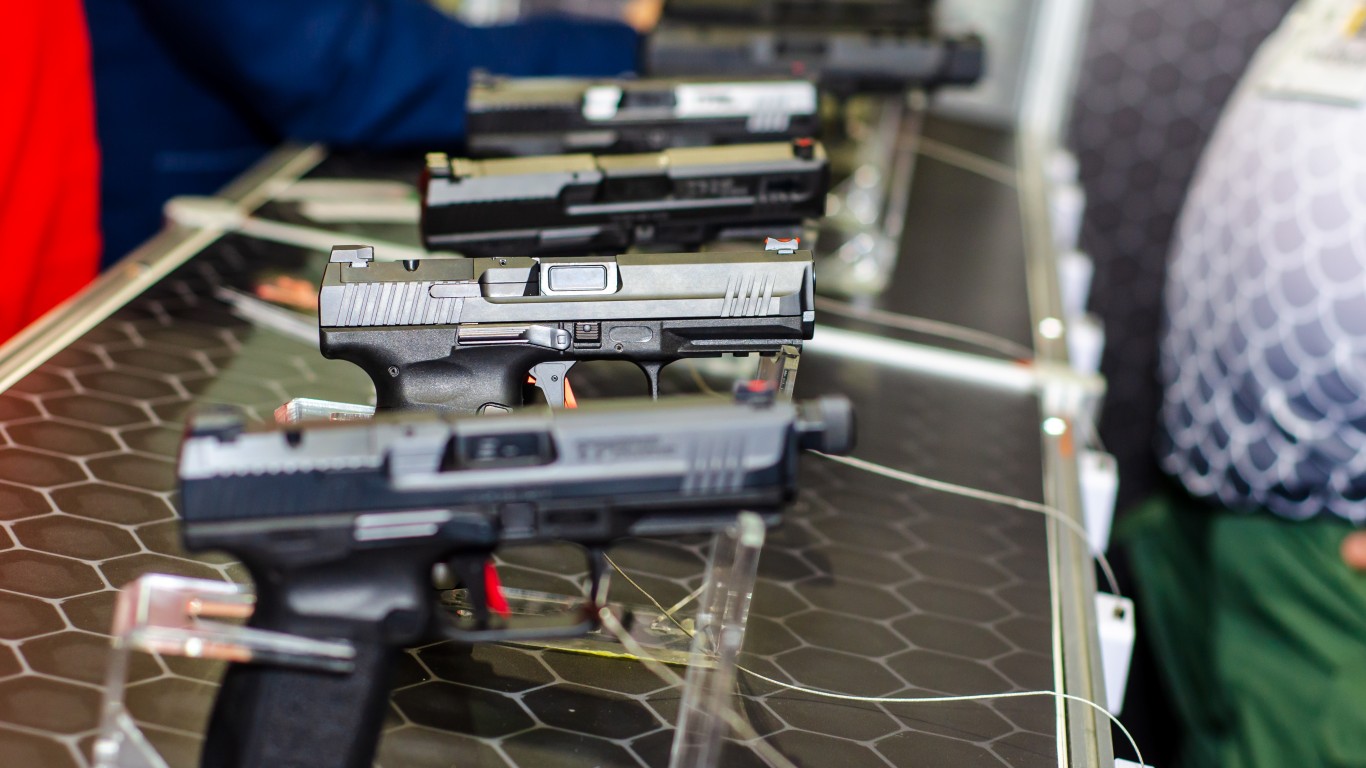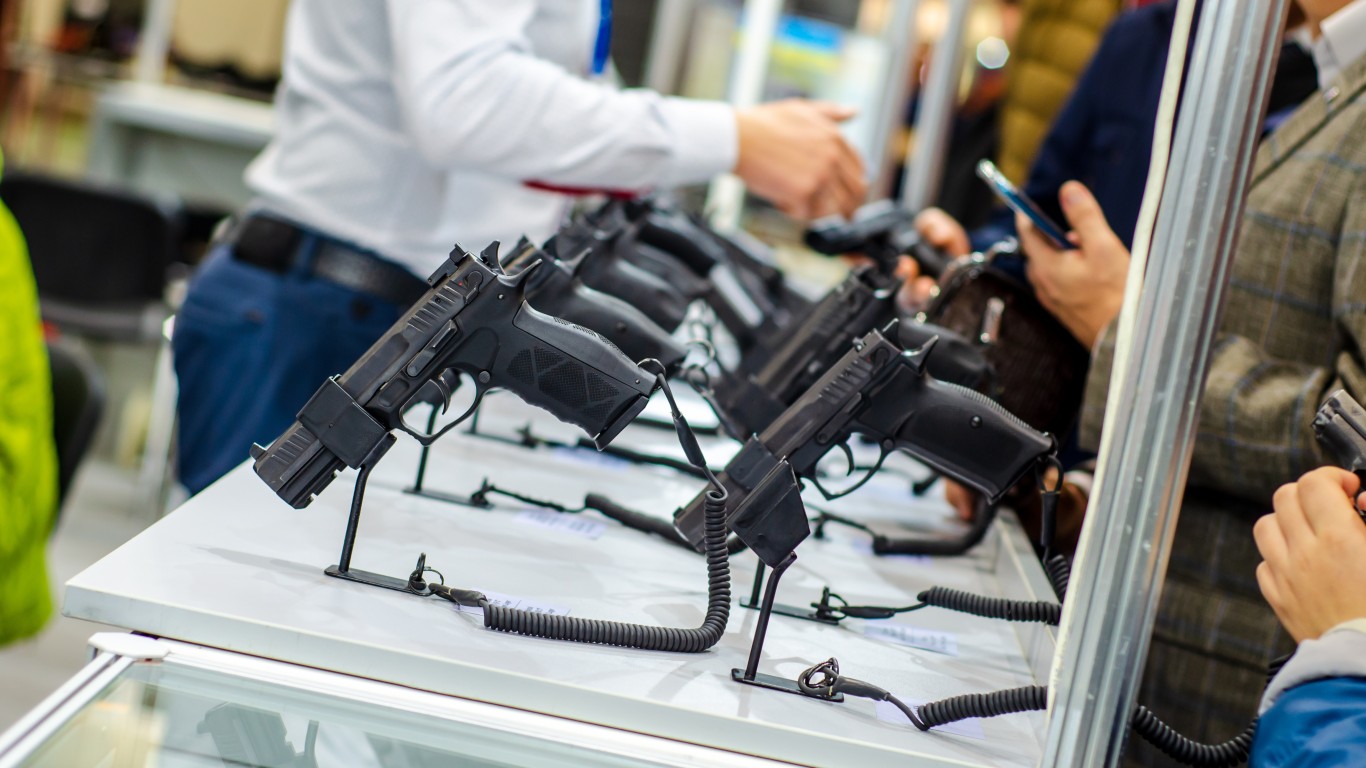
If you’ve spent any time researching jewelry, especially diamonds, you’ve probably heard a wide range of opinions about which kinds to buy, which are best to avoid, and all the problems with the diamond and jewelry industries today. The thing is, they’re not wrong. But how can you know which brands to avoid, which ones to buy, or if you should buy any at all? With so much money on the line when you want to buy jewelry, the pressure to make the right decision can be intense. Here are 8 jewelry brands to avoid.
Background on Jewelry Brands Today
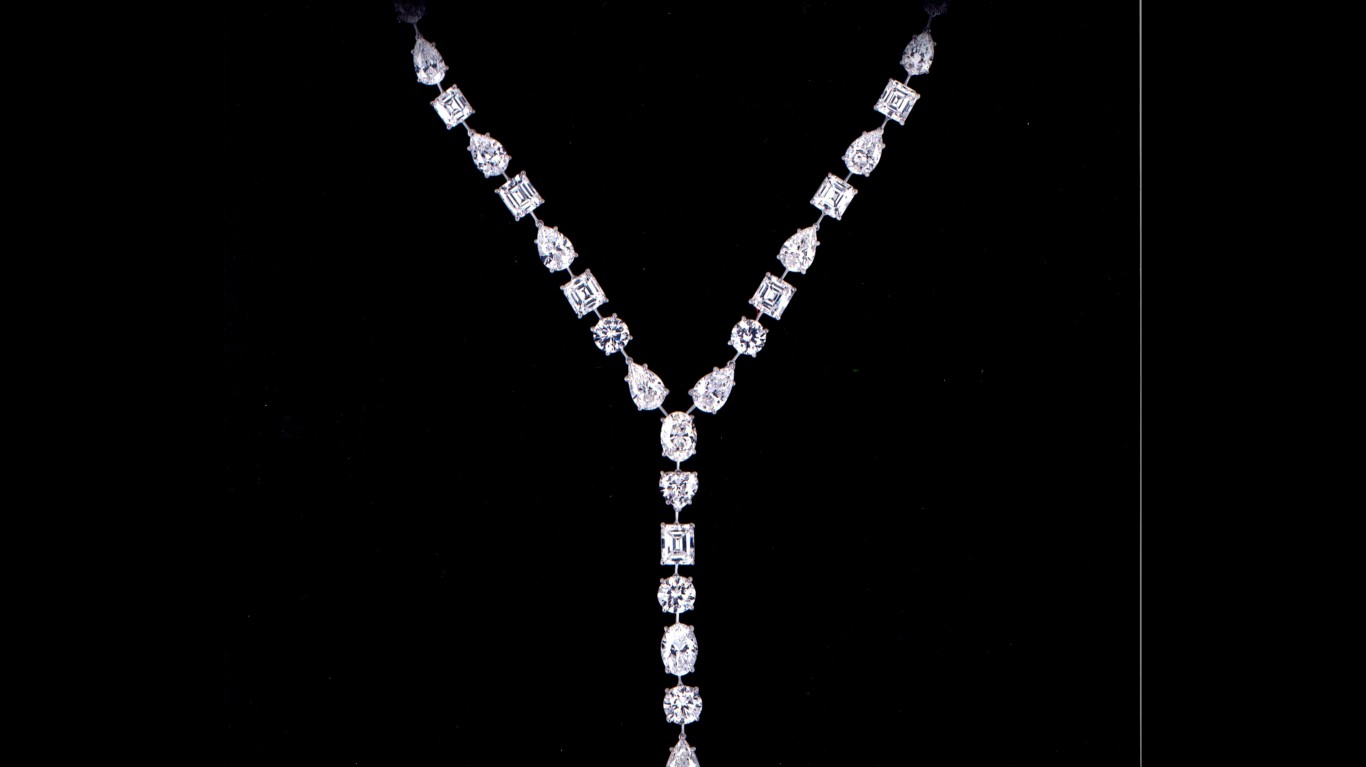
Technology today is able to recreate all the properties of popular gemstones and metals, even to the point where they are indistinguishable from all but the most talented experts with specialized tools. For example, in every discernible aspect, lab-created diamonds are essentially the same as mined diamonds.
In fact, according to the United States Federal Trade Commission, companies can’t use the word “natural” to describe mined diamonds, and the Gemological Institute of America no longer uses the word “synthetic” in its certification of diamonds. Lab diamonds are no less real than their mined counterparts, and they are made in essentially the same way. The same goes for other synthetic gemstones.
That is to say, the only reason you would want to buy jewelry with mined diamonds over actual diamonds, or only “real” materials that are indistinguishable from other materials is because you want to brag about the price to your friends or satisfy your own ego, (or you actually enjoy the fact that slave labor went into the production of your new necklace, but we’ll get into that). There really is no other reason. That being said, there are plenty of jewelry brands that sell pieces that include gems and metals of all types, knowing which ones source their products ethically and actually contribute to a better world is hard to determine.
The Ranking of Jewelry Companies
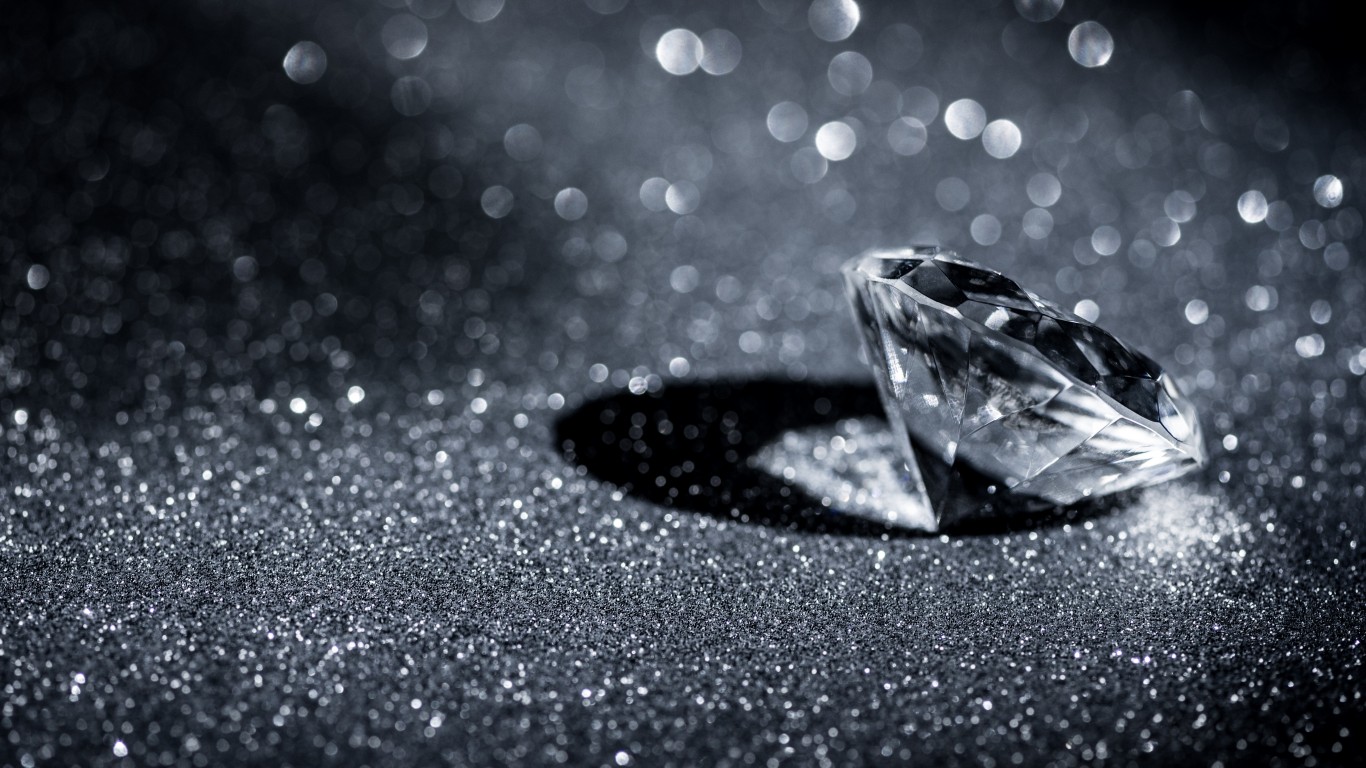
According to Human Rights Watch, there is no jewelry company with an “excellent” rating when it comes to sustainable sourcing and human rights. The highest any company has achieved is “strong”, which means the company has taken significant steps toward sustainable sourcing but has not yet eliminated unethical sources, slave labor, and other materials from its production line.
For this list, we used data available at Human Rights Watch, public records, and news agencies to determine the brands that you should avoid. We will only address the larger and more popular brands to avoid. We will not include stores or retailers. However, as a general rule, you should do your research before casually visiting your closest jewelry shop, and you should always avoid purchasing jewelry at mall locations. Your wallet and anxiety will thank you.
Additionally, this list will not include any details about the gem and diamond industry itself, their practices of price fixing, human rights abuses, and inflating the value of their products. Some of the companies on this list profit from those practices, however.
#1 Djula
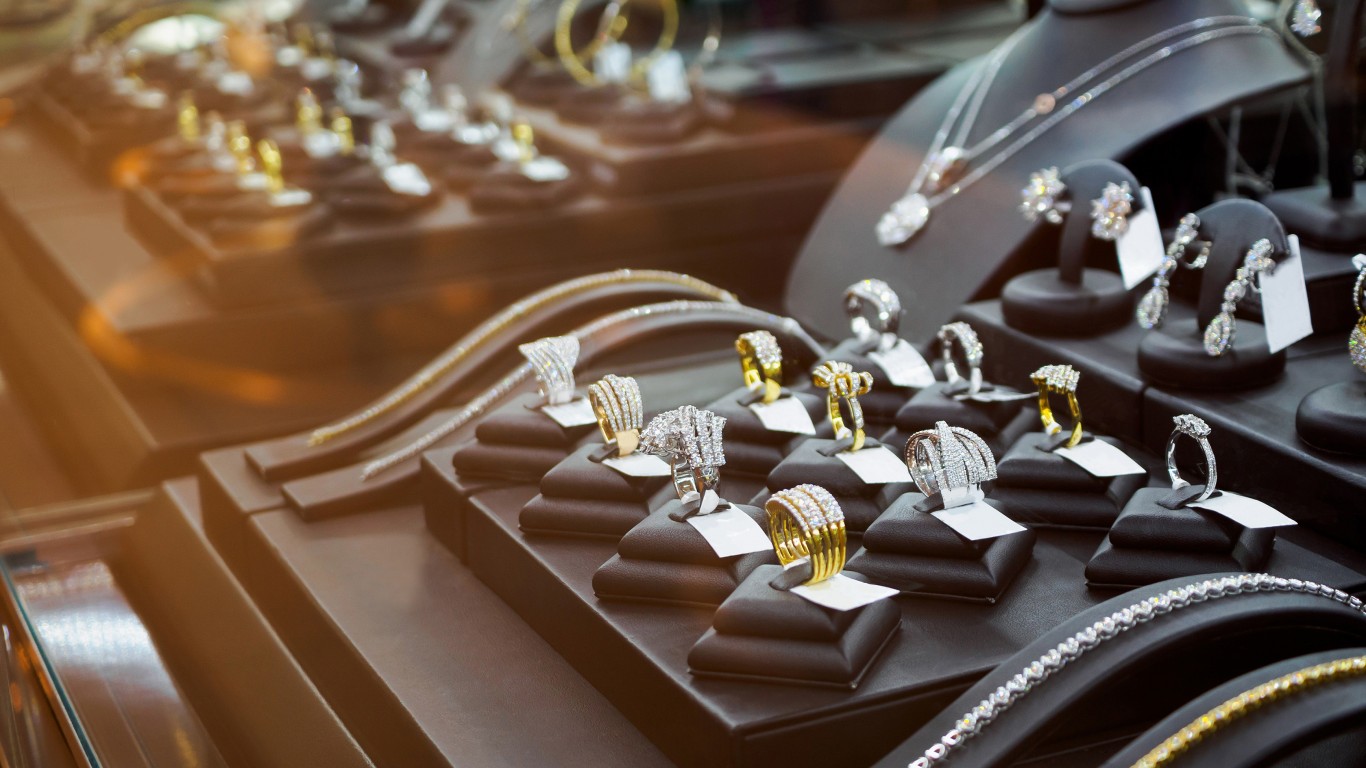
Djula is a jewelry brand owned by the Yuyuan Jewelry & Fashion Group, and, according to reports, it fails many of the checks of sustainability and ethical business practices.
Very few of the materials Djula uses in its jewelry are eco-friendly or sustainably sourced. It has done nothing to reduce its carbon footprint or reduce greenhouse gas emissions. It has taken no steps to reduce hazardous chemicals and materials in its production process or reduce the waste it produces.
Djula also does not support collective bargaining and does not ensure a living wage at any part of its supply chain. It refuses to disclose how many companies it audits for its materials, or what those audits include. It has implemented no safety policies for suppliers and workers.
#2 Shein

Fast fashion is a scam. Fast fashion is exploitative and a tool used by the wealthy and would-be influencers to maintain control over the gullible public. Fast fashion contributes to the worst aspects of our throw-away culture. It is devastating to the environment and plays on your natural human emotions to get you to buy low-quality clothing and accessories every year so you can feel like you fit in or are ahead of the fashion curve. Fast fashion is destructive to the environment, and to the people who produce it, and is generally a silly concept. At the top of the list of fast fashion jewelry brands is Shein.
Shein is a Chinese brand that exploded on social media with well over 20 million followers on Instagram alone. Their main draw is that they add 500 products to their lineup every day. Many of these products are sold at extremely low prices. But as with all fast fashion and Chinese imitation brands, these low prices come at a cost.
Shein’s Flood of Unsustainability
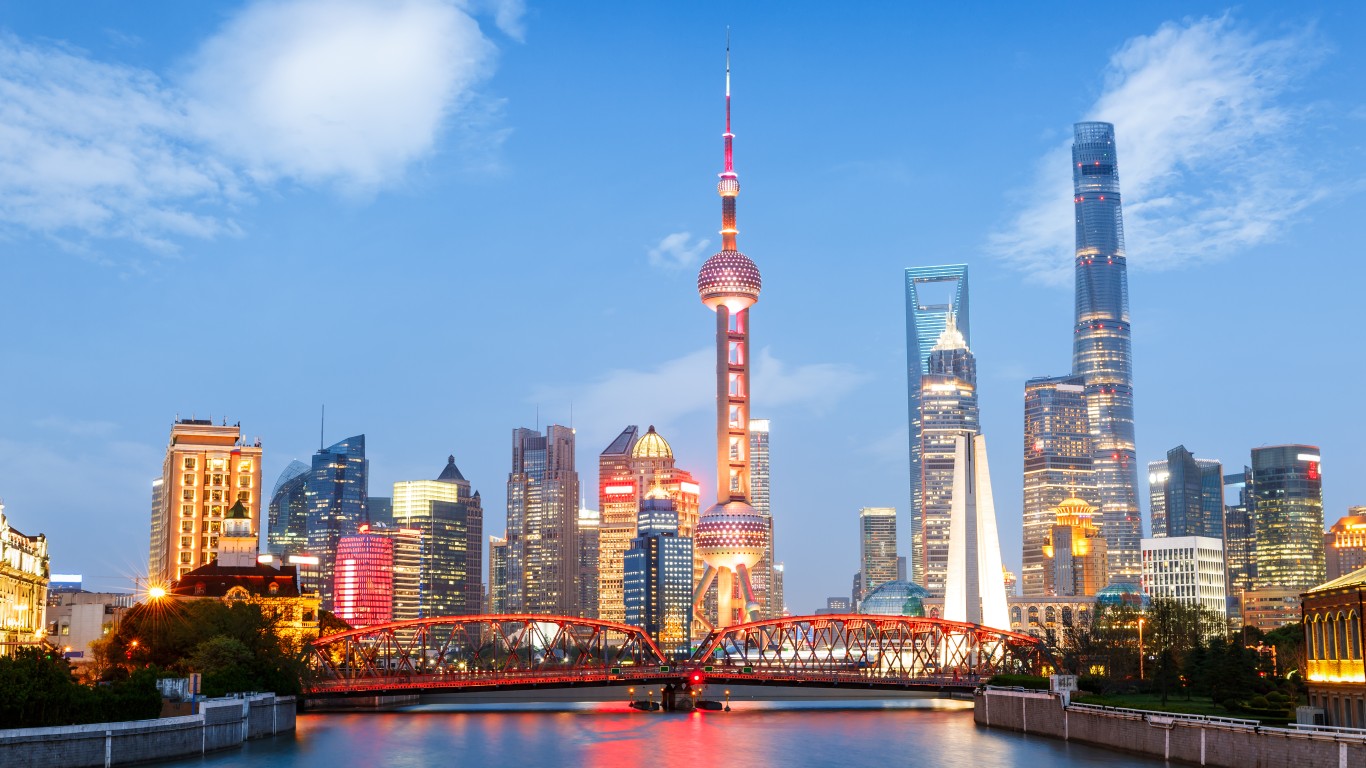
In order to produce so many products for so low a cost, Shein has done nothing to reduce the destruction of the environment its business creates. It has refused to share any details about its supply chain or where its products actually come from. Investigations of other Chinese brands, however, lead experts to believe that the sources are far from humane.
#3 Tiffany & Co.
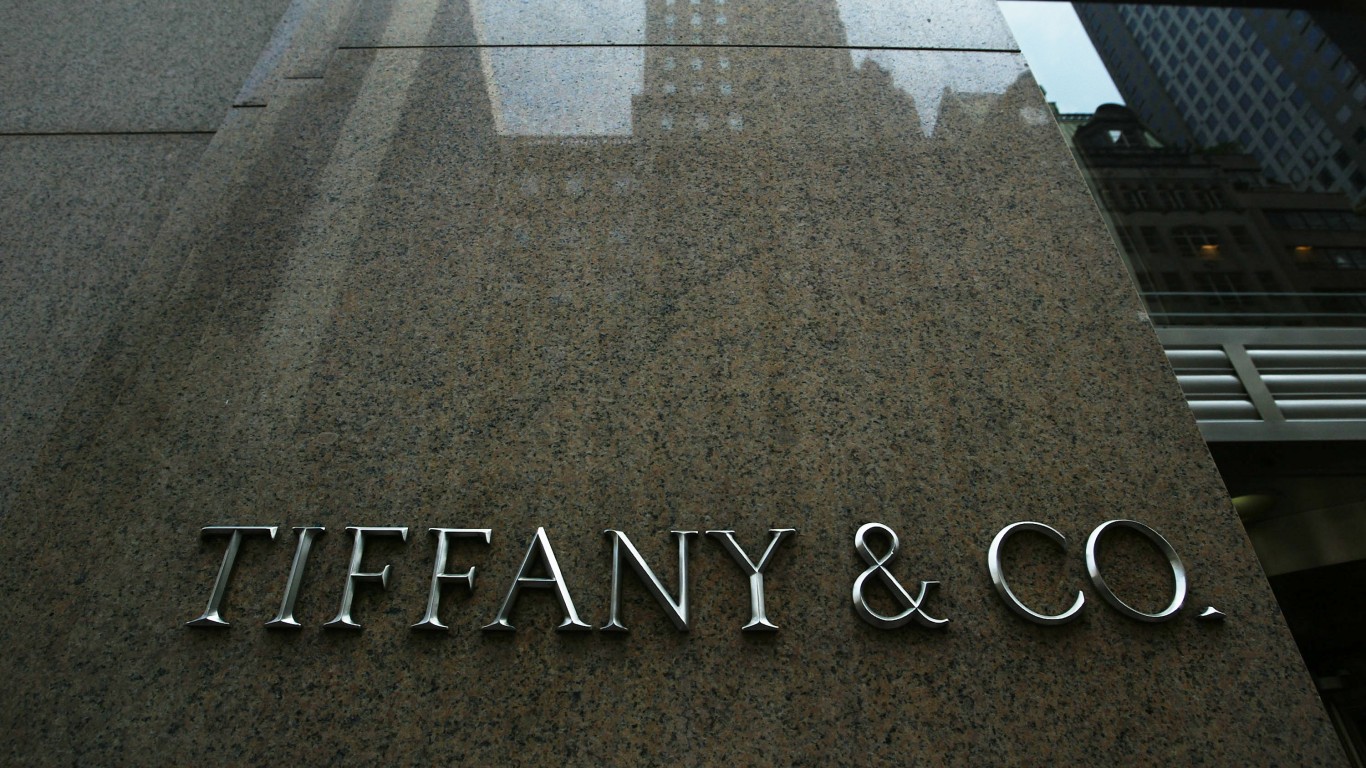
We recommend you avoid Tiffany (NYSE:TIF) jewelry not because of any humane or environmental concerns, but because you simply don’t get what you pay for. Most of the price tag for any Tiffany piece will be for the brand name, not the jewelry itself. You’re essentially paying for the right to say you bought something from Tiffany’s. If that’s important to you, well, you probably have other issues as well.
In fact, many studies have been done to compare the quality of gems at a Tiffany store to cheaper alternatives and found no difference. Good Morning America even compared a Tiffany’s diamond to a similar diamond at Costco. The two were exactly the same, but the Costco diamond was $10,000 cheaper.
#4 Chow Tai Fook
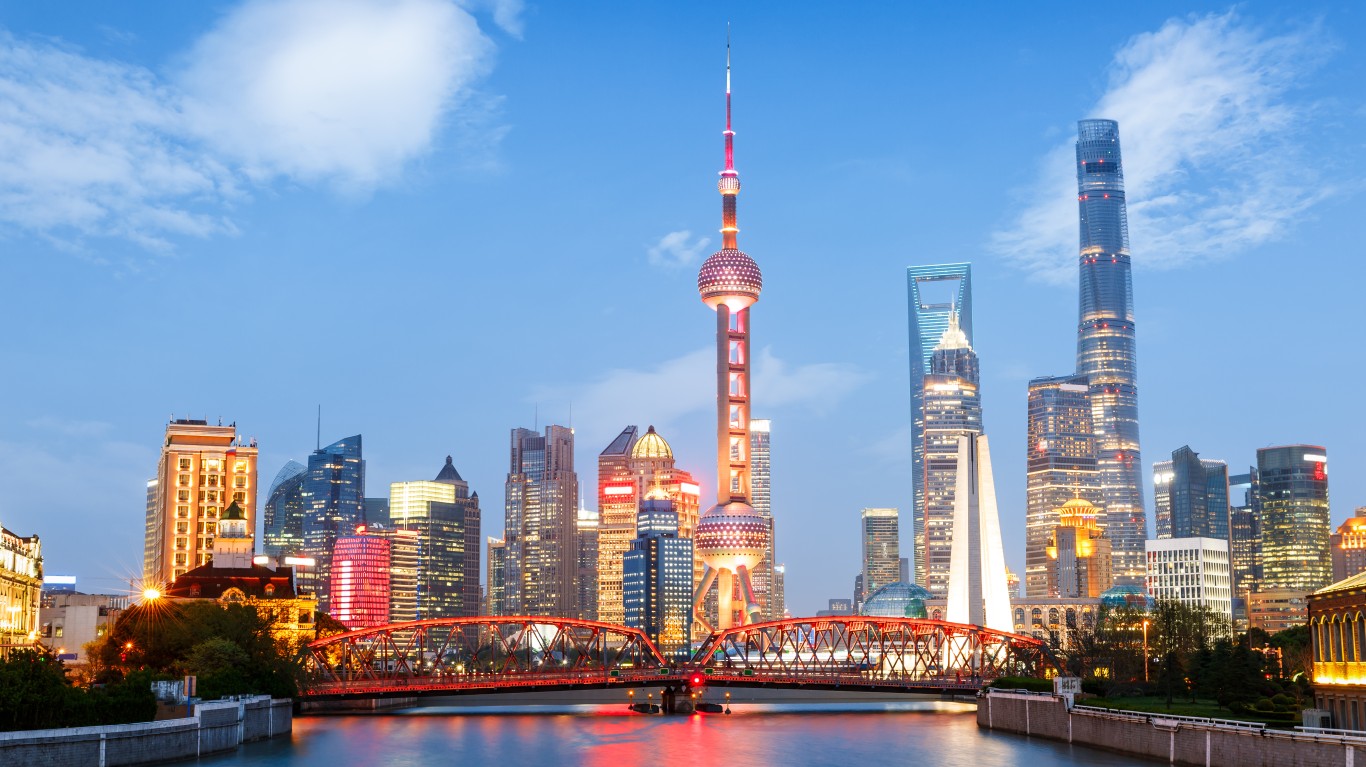
Chow Tai Fook is actually a massive, privately-owned conglomerate of many companies, including the Chow Tai Fook Jewellery Group. They earned a “weak” rating from Human Rights Watch because they have taken few or no steps toward sourcing their jewelry responsibly, ethically, or ecologically friendly.
Chow Tai Fook‘s Connections to Hong Kong Triads

Additionally, there have been reports that Chow Tai Fook might have extensive ties and links to organized crime in Asia. Allegedly, Chow Tai Fook runs a number of joint ventures with bosses of the gangster triads 14K and Sun Yee On. Some of the companies run by Chow Tai Fook would employ members of these triads to collect debts from gamblers or other debtors. It’s hard to say if your purchase of Chow Tai Fook jewelry would fund organized crime in China, but nobody can say it won’t!
#5 Christ

Christ is a German jeweler and used to be the largest German jewelry company in the world. It also received a “weak” rating from Human Rights Watch. This means that it has made almost no effort to source its materials sustainably or responsibly.
In its public documents, Christ removed information about wages, regular monitoring, working time, and labor contracts have been removed. Nobody knows where Christ sources it gold or diamonds. It does not disclose the names of its suppliers, mines, or manufacturers. It has made no public remarks about its position on human rights abuses in the industry.
#6 Tanishq

Tanishq is a jewelry brand from India, and a division of the Titan Company, which produces high-fashion products. It operates high-cost stores in the United States, India, Singapore, Qatar, and the UAE.
Like other large international brands, Tanishq feels no obligation to disclose its sources or where it gets its resources for its products. It received a “weak” ranking from Human Rights Watch. It used to be lower on the list but made some promises to reform its process which moved it up the list. Tanishq has no sustainability or responsibility policies of its own and relies on the policies of Titan, which are extremely vague and have no real guidelines. Its actual policies are not public.
Tanishq Gem Sources
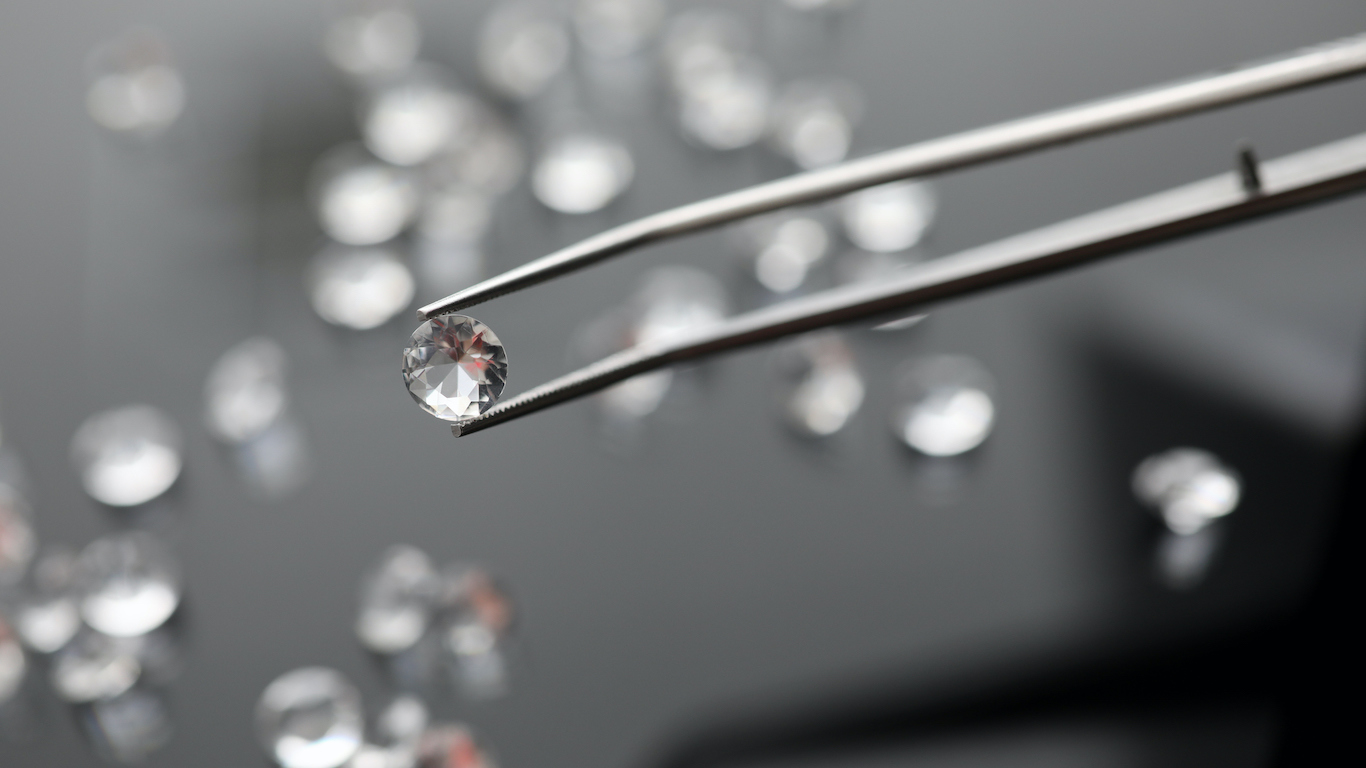
Tanishq sources most of its diamonds from large, corrupt organizations like De Beers, but 20% of its diamonds come through other untraceable routes. By its own admission, some of the mines where it sources diamonds have only “acceptable” labor and safety practices. It does not publish its audits of suppliers, the results of those audits, or what it does to address non-compliance. We doubt they do much.
#7 Local Mall Jewelers
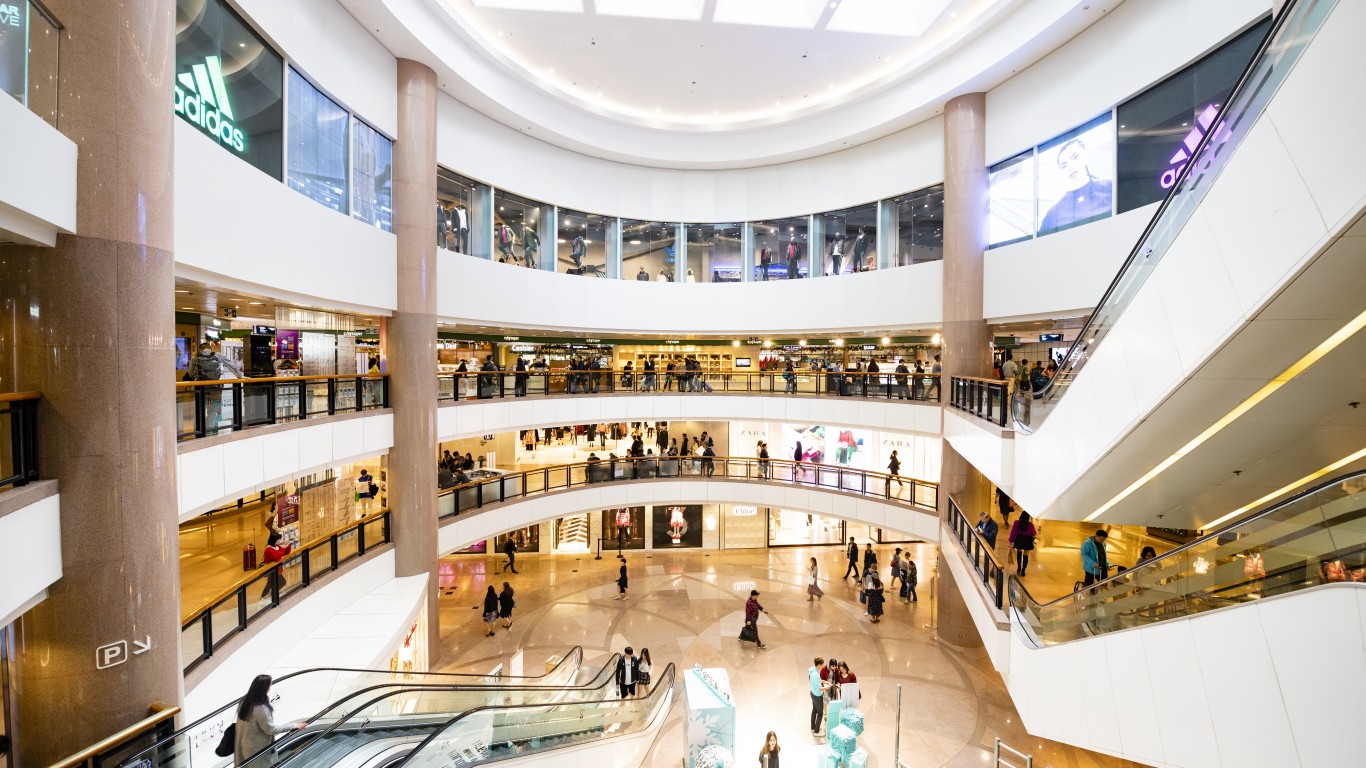
This inclusion is best to avoid if you value the money in your wallet. If you’ve ever visited your local mall, you’ve definitely passed several jewelry stores that are unique and exclusive that that particular mall or that location. Some brands are only sold in malls or shopping centers. Many carry well-known brands along with some of their own options. Do not buy your jewelry at these stores.
Not only do these stores source low-quality materials for their jewelry, they also price them with outrageous markups. A store in a mall costs a lot of money to maintain, and jewelry companies do not make the same number of sales as other stores, so they are forced to price their jewelry much higher than other brands and stores. If you find a piece you like, chances are you can find a similar piece with higher-quality gems at a lower price somewhere else.
#8 Mikimoto

Mikimoto rose quickly up the ranks of luxury brands by selling the best imitation pearls in the world. A single strand of Mikimoto’s cultured pearls can costs thousands of dollars. The problem? They’re simply not worth it. Mikimoto’s imitation pearls are more expensive than the rarer real pearls, and yet nobody can tell the difference anyway. This means that you are paying a premium for an imitation product that looks no different than the real deal.
Conclusion
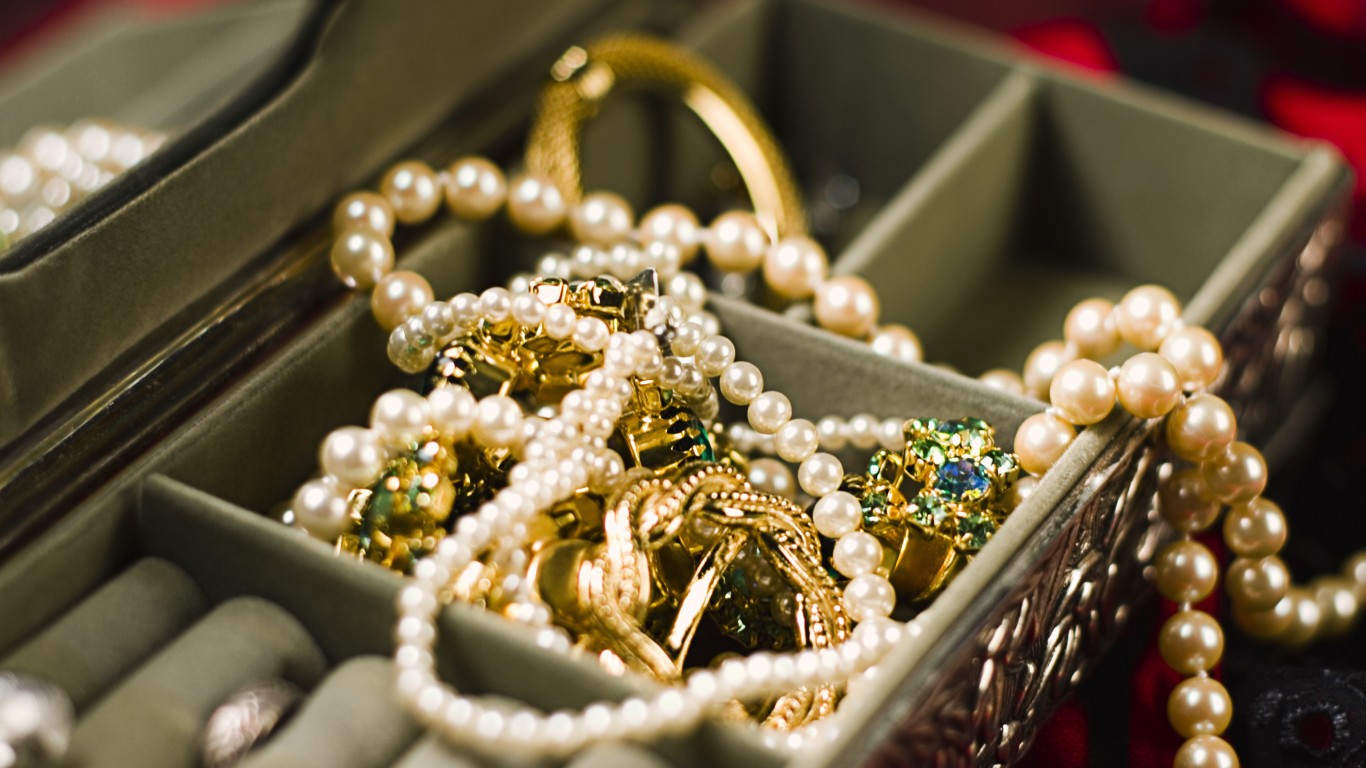
Buying jewelry can be a stressful task, especially when you want to get the perfect gift and the prices are so high. Marketing and branding make you feel like jewelry is the best way to show your love for someone else. Well, they’re wrong. Explaining to your significant other that you don’t want to buy expensive jewelry from certain stores because of their labor practices and treatment of poor workers is a noble thing to do. Don’t settle for the cheapest piece, especially if you know they abuse their miners or sources, and don’t fall victim to buying the most expensive piece because it probably isn’t worth near as much.
What can you do?
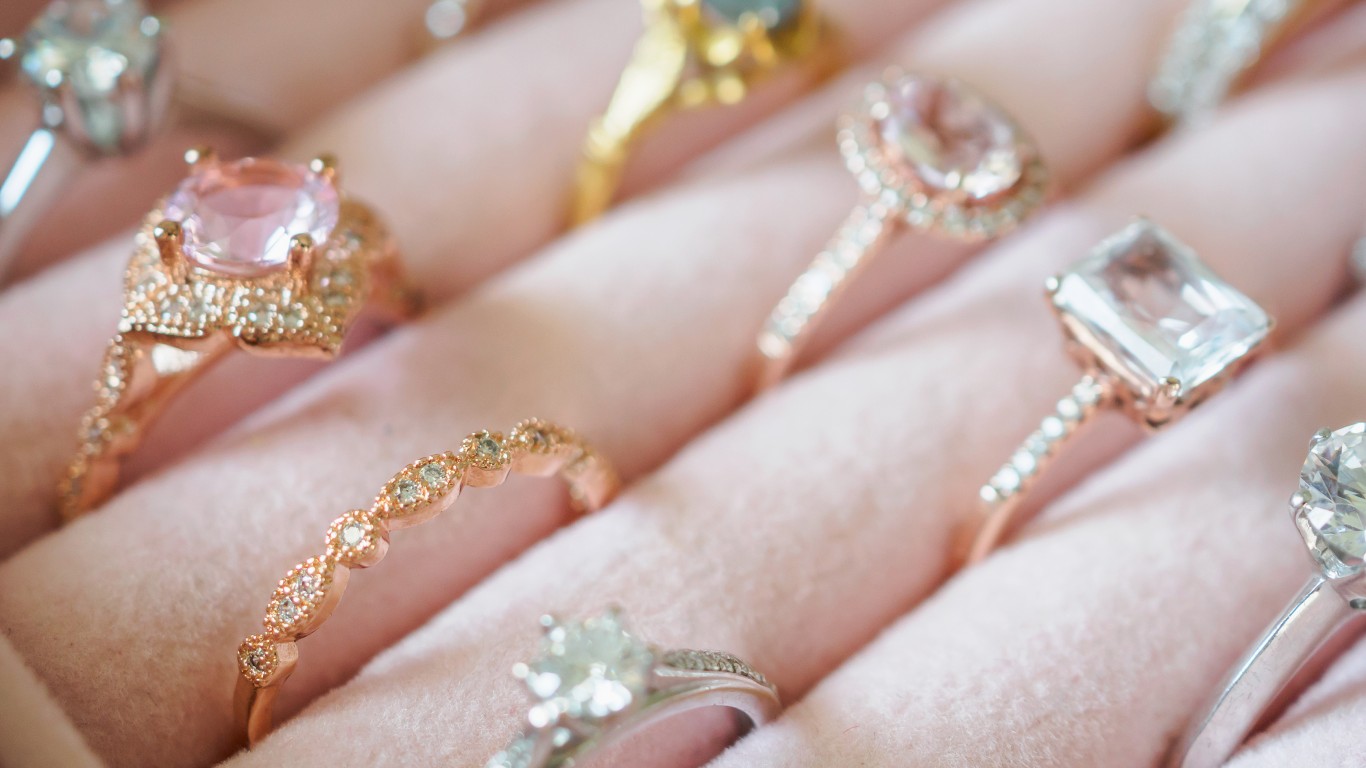
The best thing you can do when buying jewelry is to do your research. Look into the company you are visiting. Where do they source their gems? What kinds of metals do they use and where are they from? Are their prices comparable to others in the area? Ask for certification and information about their pieces.
Next, consider not buying diamonds at all. Diamonds are not actually rare, and their price is inflated due to an extremely successful marketing campaign beginning in the 1930s and continues until today. There are other gems that are much more stunning and rare. Buying diamonds supports a network of criminality and inhumane labor practices, not to mention the fact they are essentially a scam. Don’t fall victim to persuasive marketing and branding. Put some extra thought into your Valentine’s Day gift and get something else.
100 Million Americans Are Missing This Crucial Retirement Tool
The thought of burdening your family with a financial disaster is most Americans’ nightmare. However, recent studies show that over 100 million Americans still don’t have proper life insurance in the event they pass away.
Life insurance can bring peace of mind – ensuring your loved ones are safeguarded against unforeseen expenses and debts. With premiums often lower than expected and a variety of plans tailored to different life stages and health conditions, securing a policy is more accessible than ever.
A quick, no-obligation quote can provide valuable insight into what’s available and what might best suit your family’s needs. Life insurance is a simple step you can take today to help secure peace of mind for your loved ones tomorrow.
Click here to learn how to get a quote in just a few minutes.
Thank you for reading! Have some feedback for us?
Contact the 24/7 Wall St. editorial team.
